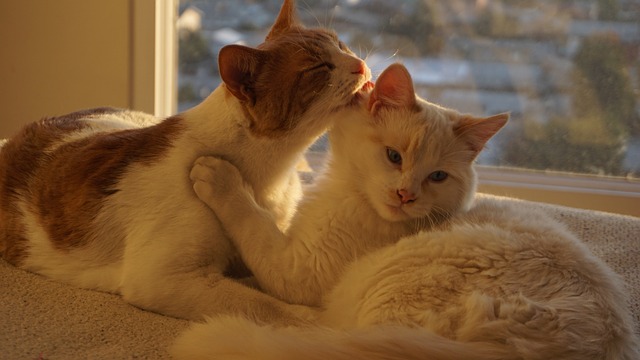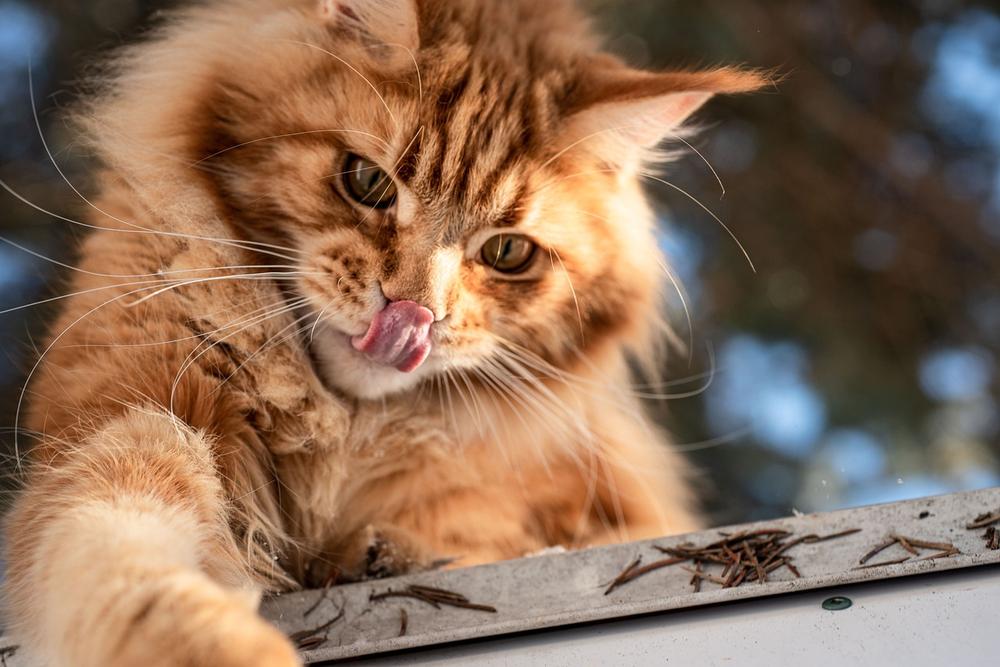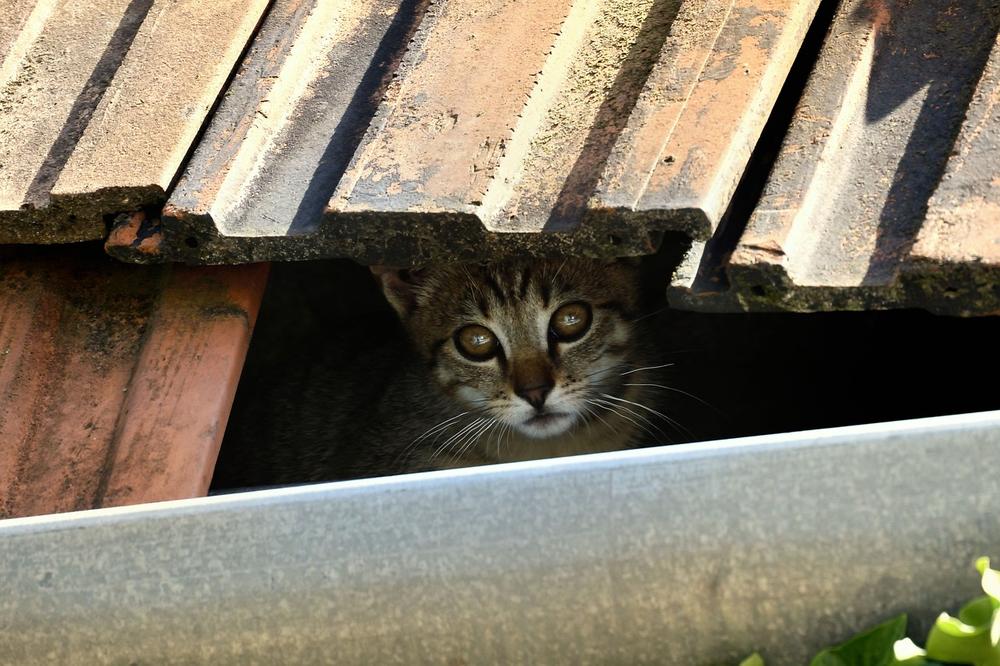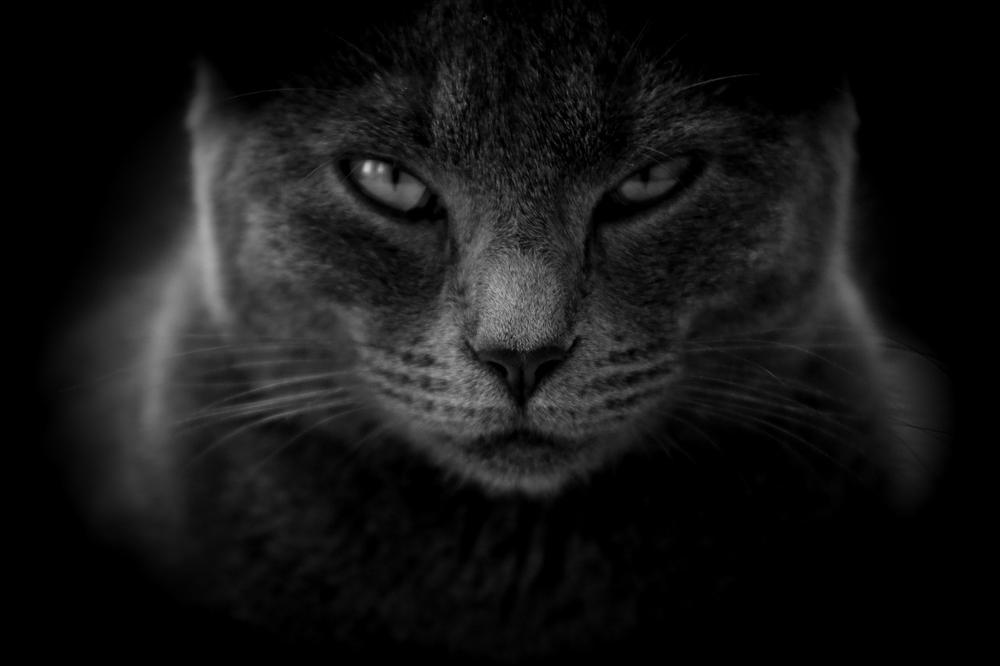Cat Behavior After Mating: Do They Actually Act Differently?

Ever wondered what goes on in your cat's mind after a steamy rendezvous?
Feeling concerned about Mr. Whiskers and his post-mating behavior?
I feel ya.
You're not alone in this rollercoaster of emotions 😺.
Just imagine:
You're staring at your feline friend, observing every twitch and meow, thinking, "Is everything okay? Why is he acting so strange?"
Well, buckle up because we're about to dive deep into the enigmatic world of cat behavior after mating.
Let's unravel the mystery together, shall we?
How Do Female Cats Act After Mating?
Female cats have a range of behaviors after mating that can tell you a lot.
Here's what you need to know:
- When they roll around and rub against surfaces, it's their way of relieving anxiety and getting rid of excess energy.
- Females will spend more time grooming themselves after mating to keep clean and maintain hygiene.
- Sometimes, they may show aggression towards male cats after mating. This is just their natural response to make sure the male cat leaves and calms down before potentially mating with another male.
- Hormonal changes can cause some odd behavior in female cats after mating. They might act strangely or unpredictably, but don't worry, it's perfectly normal.
- Mating can be painful for female cats because of the barbed reproductive organs. So, this pain can contribute to aggressive behavior and territorial aggression. 😾
- To get rid of the male's scent, female cats may display territorial aggression. It's their way of protecting their territory.
These behaviors are all part of a cat's natural response to mating and hormonal changes.

So, if you want to take care of your cat the best way, pay attention and understand these behaviors.
Main points I'll expand upon further down this article:
- Male cats typically leave after mating and return when the female is receptive again.
- Female cats squat and tread their paws when ready to mate.
- Male cats mount the female and bite her neck during mating.
- Females can mate up to 30 times in a single heat cycle.
- Cats mate based on natural instincts, not for romantic purposes.
- Mating triggers ovulation in female cats.
- Female cats are active and exhibit behaviors like rubbing and rolling on the floor during heat.
- Cats can become pregnant as early as 4 months old.
- Cats can become pregnant after one mating, so it's important to keep them indoors or away from males.
- Spaying female cats is recommended for their well-being and to prevent unwanted pregnancies.
And it gets better...
Male cats' behavior also undergoes some interesting changes after mating.
Curious to know how they react?
Keep reading to discover the intriguing post-mating behaviors exhibited by male felines and how they differ from their female counterparts...
How Do Male Cats Behave After Mating?
After a successful mating session with a female, male cats usually lose interest in the pursuit of love - at least temporarily.
They withdraw their attention from the female until she signals her readiness to tango once more. Typically, there are no major behavioral changes in male cats after engaging in the art of procreation; although they might flee the scene, seeking new adventures elsewhere.
Occasionally, aggression may rear its head when males bite and hold down the female's neck during the passionate act.
But fear not, dear reader, for this is merely part of a feline courtship ritual.
What Happens During Mating?
During mating, male cats playfully nibble on the female's neck, triggering ovulation. Females signal their readiness by crouching and treading their rear paws. The male then mounts the female, biting her neck, and mating can last from 30 seconds to 4 minutes. Females can mate multiple times without being picky about partners.
When male cats mate, they get a bit playful with their female companions.
They nibble on the back of her neck and hop on for a ride.
This whole situation actually triggers ovulation in the female. Oh, how romantic!
Now, female cats have their own way of letting everyone know they're ready to mingle.
When they crouch down low and start treading their rear paws, you better pay attention because love is in the air!
Once the female strikes her pose, it's showtime for the male cat.
He jumps on top and does his thing, biting her neck as he mounts her.
Talk about a wild time!

This fiery mating session can last from a quick 30 seconds to a bumpy 4 minutes.
You might even hear some loud yowling from the female cat. Poor thing.
It turns out that this feline chase can be quite uncomfortable due to the barbs on the male cat's penis.
Ouch.
While bleeding after mating doesn't happen often, it's possible because those little spiky surprises are not pleasant.
Females sure know how to have fun, as they can mate up to 30 times during one heat cycle.
And guess what?
They aren't too picky about their partners.
For these feline lovebirds, it's all about fulfilling their natural instincts rather than a romantic connection.
What Is Estrus?
| Behavior | Description |
|---|---|
| Increased affection | Female cats may become more affectionate towards their owners during estrus. They may seek more attention and crave physical contact. |
| Vocalization | Cats in estrus may vocalize more frequently, often making loud, high-pitched sounds. This is their way of attracting potential mates. |
| Restlessness | Female cats in estrus may display restlessness and become more active. They may pace, wander, or appear more agitated than usual. |
| Rolling and rubbing | Cats in estrus often exhibit increased rolling and rubbing behaviors. They may rub against objects, furniture, or people to mark their territory and signal receptivity to mating. |
| Increased scent marking | Female cats may engage in increased scent marking behaviors during estrus. They may urinate more frequently and in various locations to attract males. |
| Decreased appetite | Some cats may experience a temporary decrease in appetite during estrus. Hormonal changes can affect their appetite, but it may return to normal after the period of estrus. |
| Mood swings | Cats in estrus might experience mood swings. They may alternate between being affectionate and irritable. It is important to be patient and understanding during this time. |
| Attention seeking | Female cats may seek more attention from males during estrus. They may display flirtatious behaviors to signal their receptiveness. |
| Increased grooming | Cats in estrus may groom themselves more frequently. This is believed to be a way to enhance their scent and attract potential mates. |
| Aggression towards other cats | Female cats in estrus may show aggression towards other cats, especially if they perceive them as competition for potential mates. They may hiss, growl, or even engage in fights. |
Estrus refers to the period when female cats are ready to mate, acting in a flirtatious and social manner.
They become quite affectionate by rubbing against various objects and ensuring that everyone is aware of their desire for romance.
What's more, you may witness them rolling on the floor, enhancing their sociability.
On top of all that, their vocalizations become particularly intense during estrus, so much so that your neighbors might mistake it for a mating call happening right outside their window.
It's like a cat-style karaoke night!
Perhaps you're curious about how long this exciting phase lasts.
Typically, it spans anywhere from 1-2 weeks and occurs every 2-3 weeks.

So, rest assured, the dance floor opens up regularly!
However, you must note that sexual maturity can occur as early as six to nine months, with some cats strutting their stuff at just four months old.
In certain regions, mating season lasts all year, resulting in female cats being in heat for approximately one week.
Here's an interesting tidbit:
Even while nursing her adorable kittens, a mama cat can experience repeated heat cycles under certain conditions. She definitely won't let those little ones hinder her from enjoying herself! 😺
And here's where things really get fascinating!
I bet you didn't know that the timely release of eggs, or ovulation, occurs shortly after successful mating in cats.
The barbed penis of the male stimulates this process, leading to the potential for pregnancy...
When Does My Cat Ovulate?
Cats ovulate shortly after mating, with fertilized eggs able to attach within 10-12 days. Surprisingly, cats can become pregnant as young as 4 months old, even while nursing. Spaying your cat at 4-6 months old prevents unplanned pregnancies. Understanding ovulation is crucial for successful breeding.
Cats usually release eggs shortly after mating, sometimes even within a few hours. It's a quick response to the male cat's unique anatomy.
But here's an important thing to keep in mind...
Fertilized eggs can only attach themselves within 10-12 days of ovulation.
If your cat doesn't mate during this specific time frame, she won't get pregnant.
Now, get ready for something surprising...
Did you realize that cats can actually become pregnant as early as 4 months old, even while they are nursing their kittens?
It's like these felines are always prepared for a surprise!
So, if you don't plan on breeding your cat, make sure you spay her when she's around 4-6 months old.
This will prevent any unplanned pregnancies down the road.
Oh, and don't forget, understanding when your cat ovulates is essential if you want to successfully breed your furry pal.
And speaking of unexpected behavior, have you noticed signs of aggression in your pregnant cat? It's completely normal for them to exhibit unusual behavior during this time.
If you're curious to understand why your pregnant cat may be acting mean and aggressive, I highly recommend checking out my article on https://icareforcats.com/why-is-my-pregnant-cat-so-mean-and-aggressive/.
You'll find valuable insights and advice to help you navigate this phase of your cat's pregnancy.
The Outcome of Mating: Conception or Not?
Not all instances of mating end in pregnancy, and it's crucial for you to grasp this fact. The timing, viability of sperm, and the reproductive state of the female cat are factors that come into play and can influence the outcome of the mating process.
Let's talk about cats.
After a female cat mates, she indeed has the potential to become pregnant.
To prevent unexpected litters of kittens, it makes perfect sense for you to keep your cat indoors or away from male cats.
Now, here's something you should know:
When a female cat mates, her ovulation occurs and she enters what we refer to as a heat cycle.
However, don't jump to conclusions just yet because her heat cycle doesn't conclude right away.
Here's an intriguing tidbit for you:
If conception doesn't happen, the cat will soon be back in another heat cycle, usually within two to three weeks. It's almost like Mother Nature's way of saying, "Let's give it another shot."
So, remember this:
Even a single mating session can lead to speedy pregnancies in unspayed female cats. If you're not prepared to deal with a litter of kittens, the best course of action is to have your cat spayed in order to prevent any unexpected surprises.
I hope that brings clarity to the subject.
Ensuring a Happy, Healthy, and Ready-to-Mate Pregnant Cat
You gotta do more than just make a cozy space for your pregnant cat if you want her to be happy, healthy, and ready to mate.
Here's what you need to know:
- Feed her good quality cat food that gives her the right nutrition for being pregnant.
- Keep her stress levels low by keeping things calm and quiet around her and sticking to her usual routine.
- Take her to the vet regularly to make sure she's doing okay and catch any problems early on.
- Get her set up with a comfy birthing area. Soft bedding, towels, and a box or something similar where she can have her babies in peace.
- Keep other cats away from her to avoid any fights after they mate. Give each cat their own space and distractions.
- Look out for signs that the mating was successful, like changes in sleep patterns, mood swings, nesting behavior, and more lovey-dovey behavior towards humans.
- Watch for physical signs of pregnancy, like eating more, gaining weight, morning sickness, throwing up, bigger pink nipples, and a bigger belly.
- Consider getting an ultrasound to make sure she really is pregnant and find out how many kittens she's expecting.
- Join online communities where people talk about pregnancy and spaying cats so you can learn everything you need to know.
- Seriously, think about getting her spayed. It'll stop any more surprise pregnancies and it's good for her health overall.
Looking after a pregnant cat means paying attention, taking action, and making sure she has a safe and comfy place for herself and her babies.
And that wraps up today's article.
If you wish to read more of my useful articles, I recommend you check out some of these: Pregnant Cat Calling as if in Heat, My Cat Doesnt Want to Mate, My Cat Doesnt Want to Mate, My Cat Doesnt Want to Mate, and Cat Meowing Purring After Giving Birth
Talk soon,
-Sarah Davis